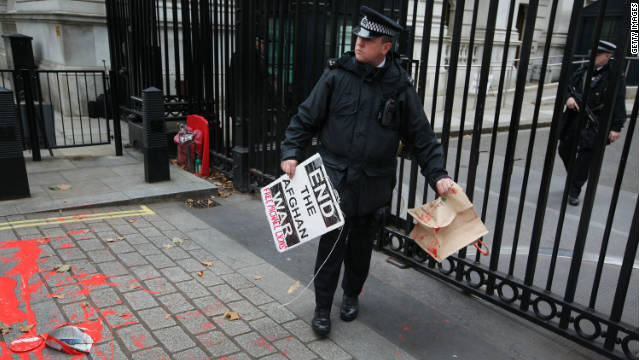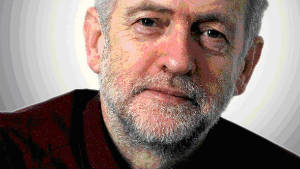)

(CNN) -- Ten years ago, in the wake of 9/11, the U.S. led the invasion of Afghanistan to capture Osama Bin Laden and defeat the Taliban.
Bush, enthusiastically supported by UK Prime Minister Tony Blair, sought and received unprecedented powers from Congress, a vast increase in military spending took place, and war was on.
The world, barely recovered from the shock of 9/11 and seeing iconic buildings in New York and Washington in flames, did not really question the logic of this decision by Bush.
The invasion duly happened; predictably the Afghan forces were over-run and the hunt was on for Bin Laden.

A look back at the battle of Tora Bora
There were many contradictions in all this.
Bin Laden and his companies had been associated with the U.S. and even reportedly the Bush family. The statements by Bin Laden were more concerned about U.S. forces in Saudi Arabia than anything else.
Far from being a clear declaration of war, the forces merely attacked and opponents were labeled by a hitherto unknown tag as "enemy combatants," rounded up at Bagram Air Base and flown off to the handily out of reach U.S. base in Guantanamo Bay.
In the U.S., the Homeland Security Act gave enormous powers of surveillance over citizens and introduced concepts of executive detention; in the UK new anti-terror laws did much the same.
Afghanistan was quiet for a while and gradually became more and more opposed to the Western presence.
By summer 2002, Bush and Blair barely mentioned Afghanistan and following the "axis of evil" speech and "the war on terror" the invasion of Iraq was demanded on the utterly spurious grounds that it had weapons of mass destruction. Despite verifiable U.N. reports to the contrary, the invasion went ahead.
The world, barely recovered from the shock of 9/11 and seeing iconic buildings in New York and Washington in flames, did not really question the logic of this decision by Bush.
This weekend in London, the Stop the War Coalition is remembering the past 10 years -- the dead, the waste, the loss of liberty and celebrating those who have dared to oppose the notion that the world is made safer by war.
Only two weeks after 9/11, 3,000 people attended a hastily-arranged meeting at Friends House, the Quaker Centre, in London, and founded the Stop the War Coalition.
An amalgamation of peace groups and people from all parties and none, it rapidly drew a remarkable range of support and musical and artistic talent.
Young Muslims joined thousands of others on early marches and demonstrations as a new generation found their feet and their voice.
Joined by older campaigners from the Campaign for Nuclear Disarmament, STW became a crucial feature of the public debate on the rush to war, something sadly missing in the UK parliament.
Only a handful of us voted against the Afghan adventure in 2001, but we always believed the support in parliament did not reflect the reality outside.
As Blair repeated the ever less believable claims about Iraq, the opposition grew to the largest ever mobilization of people in British history, when more than a million crammed into London's Hyde Park, with hundreds of thousands more in the surrounding streets to oppose the war.
Across the globe on every continent there were parallel demonstrations.
It did not stop the war, any more than the earlier ones stopped the Afghan war.
But now, after all the deaths, the prisons, the violations of human rights and the vast profits by armaments and security companies, can anyone say we were wrong?
Differing numbers on Afghan violence
The 10th anniversary of the war makes grim reading for those who led us to it.
As with the 1930s support for Republican Spain and the 1960s opposition to the Vietnam War a new global generation have learned to oppose war.
The 10th anniversary of the war makes grim reading for those who led us to it. Drones killing villagers in Afghanistan and Pakistan, rampant corruption alongside terrible poverty in Afghanistan, and a greater schism between the peoples of Europe and North America and the Muslim world than ever before.
Expectations vs. reality on the ground
Successive U.S. presidents have authorized the killing of selected targets outside national jurisdiction.
Despite every condemnation in legal and humanitarian terms Guantanamo Bay has still not been closed.
We were told neither were wars for minerals, yet oil and mining companies are getting easy deals.
We were told it was for our safety, yet 4,000 U.S. soldiers, 400 British and many others have already died. Thousands of Afghan people have also died in conflict, many in poverty, and the largest refugee stream comes from the conflict.
Sacrifices in America's longest war
After 10 years it is past time to learn the lesson, stop and get out and start an international dialogue of peace, understanding and sharing. Otherwise we all lose.
 9:54 AM
9:54 AM
 specialshowtoday
specialshowtoday

 Posted in:
Posted in: 

0 comments:
Post a Comment